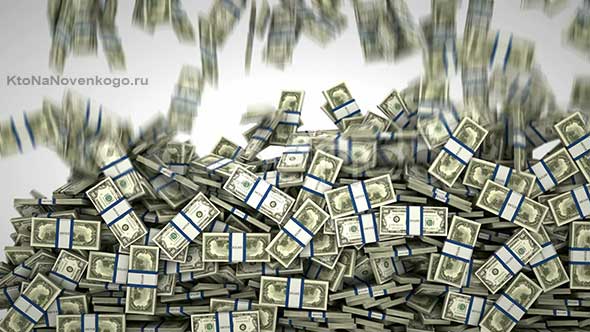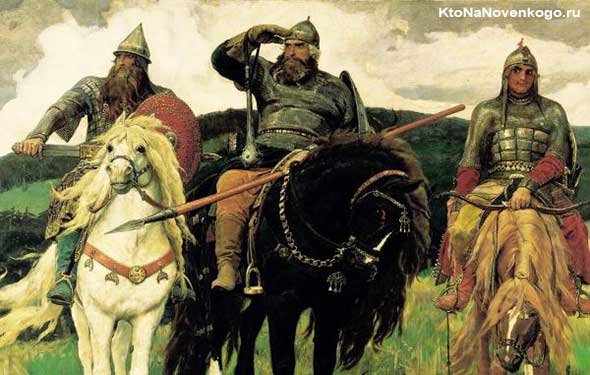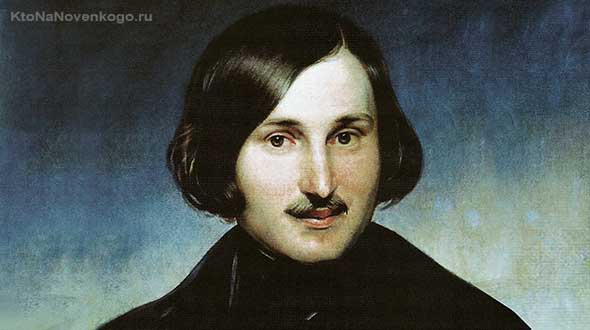What is hyperbole, examples from literature and everyday life
Hello, dear blog readers Website. All of us in life have ever spoken or heard such an expression (and someone else): Always late or one hundred years have not seen.
And few people wondered that these phrases were deprived of some common sense. So, a person simply can't "be late." And someone cannot see "a hundred years", if only because people rarely live for so long.
Similar exaggerations in Russian are called hyperboles and it is about them that will be discussed in this publication.
Hyperbole is a beautiful exaggeration
This word is Greek - "HyperBole" and denotes it "excessiveness, excess, exaggeration".
Hyperbole is one of the funds strengthening emotional assessmentconcluded in excessive exaggeration of any phenomena, qualities, properties or processes. This creates a more impressive image.

Moreover, the exaggeration comes to completely incomprehensible concepts, sometimes even. Any foreigner if it will translate literally, will be clearly puzzled. We have long been accustomed to them, and perceive them as completely normal.
Here are examples of the most frequently used hyperball:
Scare to death
A THOUSAND APOLOGIES
Although stupid
River blood
Mountains corpses
Waiting for a whole eternity
Ride a thousand kilometers
All day stood
A LOT OF MONEY
Feather
Sea Sears
Have not seen 100 years
Ocean passion
Weighs a hundred pounds
Strangle in arms
Get frightened to death
All listed expressions we are constantly using In colloquial speech. And for the sake of the experiment, simply try to disassemble them literally and see how some of them are funny, and sometimes absurd.
Well, for example, "even pouring" - it should be such a number of fluid so that it is enough for a whole pool, which could be immersed with head. Although in fact we simply want to say that we have a lot of drinks - even more than you need.
Or the phrase "a lot of money" in the very case identifies just a good financial condition, and not that the person has gathered all his savings and let them put them in one pile.

And the expression "go for a thousand kilometers" we use nor when it comes to the real distance, for example, from Moscow to Volgograd or Rostov-on-Don. And just in the meaning "far", although in fact in real numbers there may be a few kilometers there.
And so you can "debunk" absolutely any hyperball. But it is not worth doing this. They should not mean the absolute truth, their task - the most picturesque characterize a specific situation or thought, reinforcing her emotional color.
Examples of hyperball in fiction
In fact, such exaggerations are a very old literary reception. It was used, and it was without a small thousand years ago. With the help of hyperball, the power of heroes and their opponents have repeatedly enhanced.
Bogatyr's sleep lasted 12 days (well, there can not sleep for almost two weeks)
In the way of the war, there were no power - the wolf would not understand them for the day, the raven will not fly around the day (how many enemies should be - a million?)
I wake a hero of hand - among the enemies of the street, the other - the lane (that is, a few dozen kills one blow to one blow)
I took Ilya Muromets to the terrace weighing hundred pounds (here it is necessary to understand that one hundred pounds is one and a half tons)
Solovy-robber whistles - the forest to the ground is bent, and people fall dead (well, here is completely something out of the category of fairy tales)

Exactly the same hyperboles meet and in the "Word about the regiment of Igor". For example:
"Rusichy shields blocked wide fields, looking for honor, and the prince of glory" or the "army such that can spill a Volga in the orals, and to delete helmets."
Among the writers most of all hyperball meets Nikolai Vasilyevich Gogol. There are exaggerations in almost every well-known work. Here, for example, he describes the Dnipro River:
A rare bird will take up to the middle of the Dnieper.
Dnipro as the road without end in length and no measure in width.
Or uses exaggerations in their own, investing them in the mouth of heroes:
In the flour would eat you all! (Gingerbread)
Thirty-five thousand alone couriers ... The State Council itself is afraid. (Xles)
And in the "dead souls" there are such words: "Human passions are countless as sea sands."

Hyperbole uses almost any writer or poet. With their help, they, for example, more colorfully describe the character of the heroes of works or show their copyright to them.
Moreover, writers often do not use already established expressions, and try to come up with something.
Here's another examples of hyperball in the literature:
- And the kernels flew out the mountain of bloody bodies (Lermontov)
- Sunset Frozen Fourth Suns (Mayakovsky)
- Million torment (Griboedov)
- A decent person for you for the thirty lands is ready to escape (Dostoevsky)
- And pine to the stars pulls out (mandelles)
- In a dream, the janitor became heavy as the chest of drawers (Ilf and Petrov)
Examples of hyperball in advertising
Of course, by such an interesting reception, which allows strengthen the real meaning of words, could not pass and advertisers. The mass of slogans is based on this principle. After all, the task is to attract the attention of the client, promising "Golden Mountains" and in every way emphasizing the uniqueness of the goods:
- Taste on the verge of possible (chewing gum "SECTIVOLE")
- Control of the elements (Sneakers "Adidas")
- King of Salads (Mayonnaise "Oliviez")
The creation of commercials also often use the principle of hyperbolas. For example, a series of famous videos about Snickers Bar with a slogan "You are not you when hungry." Where various characters turn into completely different people and begin to create all sorts of nonsense, and only a chocolate bar is able to return them to the usual bed.

In these rollers, it is clearly hyperbolized (greatly exaggerated) feeling of hunger and "miraculous" power of the "Snickers".
Well the easiest example Hyperball, which is used in advertising, is the "best" type of expressions, the "most stylish", "most comfortable" and so on, and about prices, on the contrary, they say "the lowest".
Instead of imprisonment
It is possible to give greater expressiveness and emotional color to any expression, not only with the help of hyperboles. There is in Russian reception, which is its full opposite. It does not exaggerate, but, on the contrary, reduces the value.
You do not have time to blink, and the years have already flying.
It is called such a reception ". About this in detail - in our next article.
Good luck to you! To ambiguous meetings on the blog pages Website
see more Rollers you can go on");">

You may be interested
Multivalued words are examples of different grains of the Russian language. What is a rhetorical question and why it is intended What is a paradox - just about complex (with examples) Aphorisms are a treasury of human wisdom Dialectims are words with local flavor What is demagogy and how to deal with it









